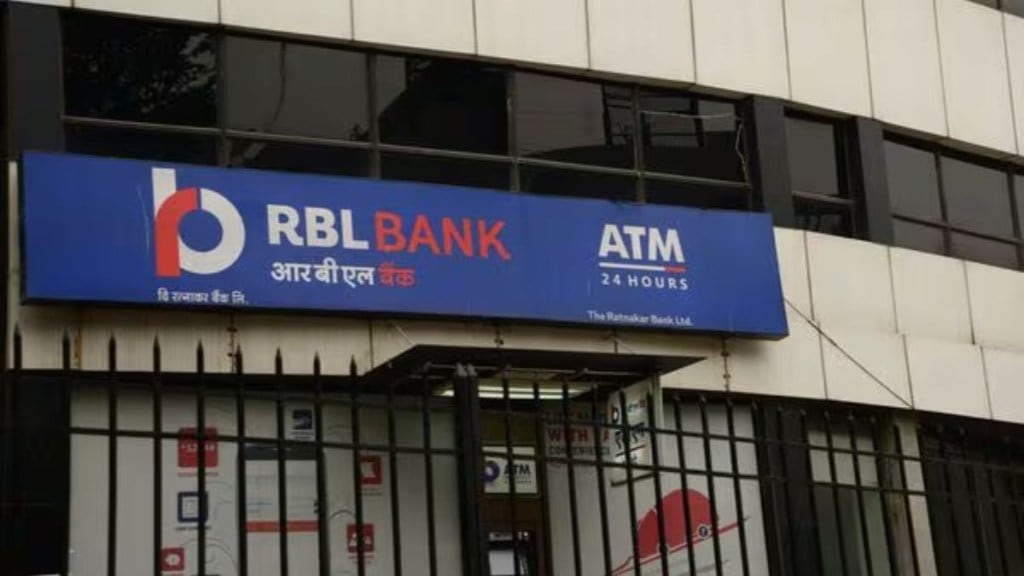The mood within RBL Bank is electric. Just this (Sunday) morning, R Subramaniakumar, managing director & CEO, fondly known as Kumar, convened a call with the senior leadership team. One of the key asks? A branch expansion plan.
“We have been asked to submit a roadmap for expanding from 100 to 150 branches in a year,” shared a senior leader. “This was a three-year ambition just a few months ago. Now, it’s a one-year sprint.” The bank is aiming to join the top-five banks league in the next three to five years.
In a landmark move, on October 18, Emirates NBD, the second-largest bank in the UAE, announced its intent to acquire a controlling stake in RBL Bank through a $3 billion (Rs 26,850 crore) preferential capital infusion, the largest foreign direct investment (FDI) in the Indian banking and financial sector.
The transaction, subject to shareholder and regulatory approvals, will give Emirates NBD a 60% stake in RBL Bank, triggering a mandatory open offer for a 26% stake under Securities and Exchange Board of India (Sebi) regulations.
“The structure is carefully designed to comply with foreign shareholding limits and minimum public shareholding norms. The open offer will precede the preferential issue, allowing for a scale-down if necessary to maintain regulatory thresholds,” said Subramaniakumar. “Emirates NBD had only one demand that their stake at any given point in time shouldn’t drop below 51% in RBL, and they should have 50% representation on the board,” said a source.
RBL Bank, currently ranked 13th among Indian private sector banks in terms of assets and market capitalisation, has set its sights on breaking into the top five within the next three to four years. As on June 30, 2025, HDFC Bank leads the private sector banks with an asset book of 39.4 lakh crore, followed by ICICI Bank (21.2 lakh crore), Axis Bank (16 lakh crore), Kotak Mahindra Bank (6.93 lakh crore), IndusInd Bank (5.54 lakh crore), and IDBI Bank, which holds4.11 lakh crore in assets. In contrast, RBL Bank’s current asset stands at Rs 1.46 lakh crore.
As of September 2025, foreign holding in RBL Bank was around 21%, and overall FDI is permitted up to 74%. RBL Bank emerged as a natural choice for Emirates NBD, driven by India’s robust growth trajectory, stable regulatory environment, and deep-rooted governance culture. What set RBL apart was its granular deposit base, agile tech adoption, and consistent leadership vision, said Subramaniakumar. He stated that “After all the necessary approvals, there will be an open offer from Emirates NBD, and 15 days after the open offer, the preferential issue will happen.”
Post-acquisition, the board composition will reflect the new ownership structure. RBL Bank’s board will be evenly split, with 50% independent directors and 50% comprising executive and non-executive directors, with Emirates NBD nominating members in line with its majority stake. The Articles of Association are being amended to accommodate an even-numbered board, capped at 14 members.
While the merger of Emirates NBD’s India branches into RBL Bank will be effective from April 1, 2026, the first tranche of capital is expected to flow in within five to eight months, following shareholder approval at the EGM scheduled for November 12.
RBL Bank, currently ranked 13th among Indian private sector banks in terms of assets and market capitalisation, has set its sights on breaking into the top five within the next three to four years. As on June 30, 2025, HDFC Bank leads the private sector banks with an asset book of 39.4 lakh crore, followed by ICICI Bank (21.2 lakh crore), Axis Bank (16 lakh crore), Kotak Mahindra Bank (6.93 lakh crore), IndusInd Bank (5.54 lakh crore), and IDBI Bank, which holds4.11 lakh crore in assets. In contrast, RBL Bank’s current asset stands at Rs 1.46 lakh crore.
RBL Bank’s growth strategy is anchored on expanding virtual commercial banking, scaling retail secured products, and becoming a leader in credit cards. The bank also plans to deepen inclusive banking across India, leverage its presence in Gift City and West Asia for international expansion, and accelerate digital payments and infrastructure to serve a broader customer base.
The bank also plans to foray into asset management, stock broking, and wealth management, leveraging Emirates NBD’s international expertise to build differentiated offerings. These ventures will complement RBL’s existing retail and corporate banking strengths, allowing it to serve a broader spectrum of customer needs.
“With the new capital, the bank will be multiplying its distribution centres, scaling up existing areas, exploring opportunities in other geographies, and exploring the wealth management business, which is now in the pilot stage at the bank,” Subramaniakumar added.
The transaction also unlocks new avenues in wholesale banking. With Emirates NBD’s backing, RBL Bank’s credit rating will effectively leap ahead from the current AA (minus). “From AA- to AAA, we are now a bank that can sit across the table from India’s largest corporates,” said another executive. “It opens doors to banking relationships with giants like Reliance and Infosys, which were previously out of reach.”
Beyond capital, Emirates NBD brings deep global banking expertise, digital innovation, and access to the vibrant India-Middle East trade corridor. This corridor, powered by remittances and cross-border commerce, is a strategic artery for both nations. The merger positions RBL Bank to tap into this flow, offering tailored products to NRIs, exporters, and diaspora-linked businesses.
“Nearly 40% of remittance flows from the region come via Emirates NBD; imagine the leverage we will have in the future,” said an executive.
With both banks operating on similar technology platforms—Finacle and Calypso—the integration is expected to be seamless, enabling rapid scaling of digital capabilities.
Ultimately, this deal is more than a financial transaction. RBL Bank is transitioning from a mid-sized player to a future-ready institution, backed by a globally respected financial powerhouse. As Subramaniakumar puts it, “India is the reservoir, and this capital is the river flowing into it. We are ready to channel it into growth.”

